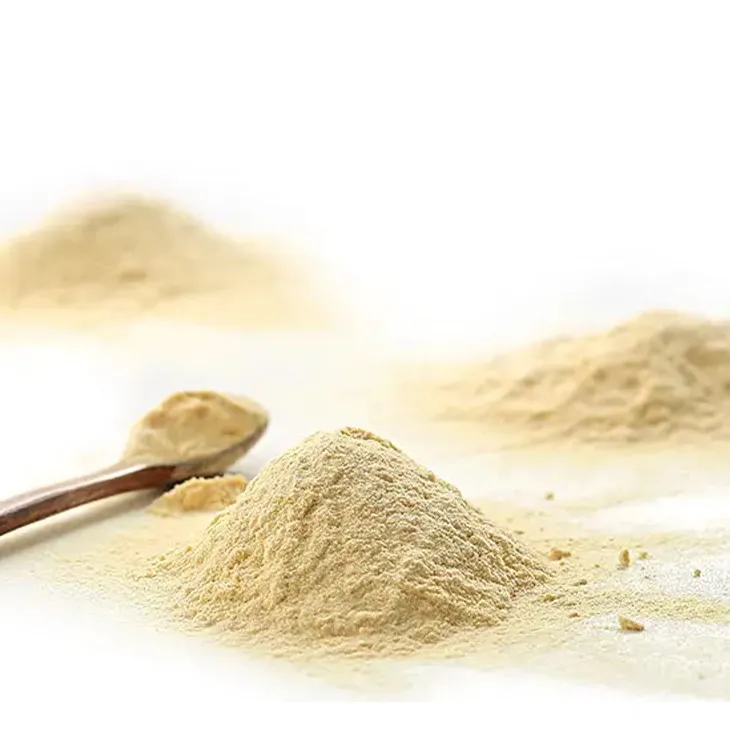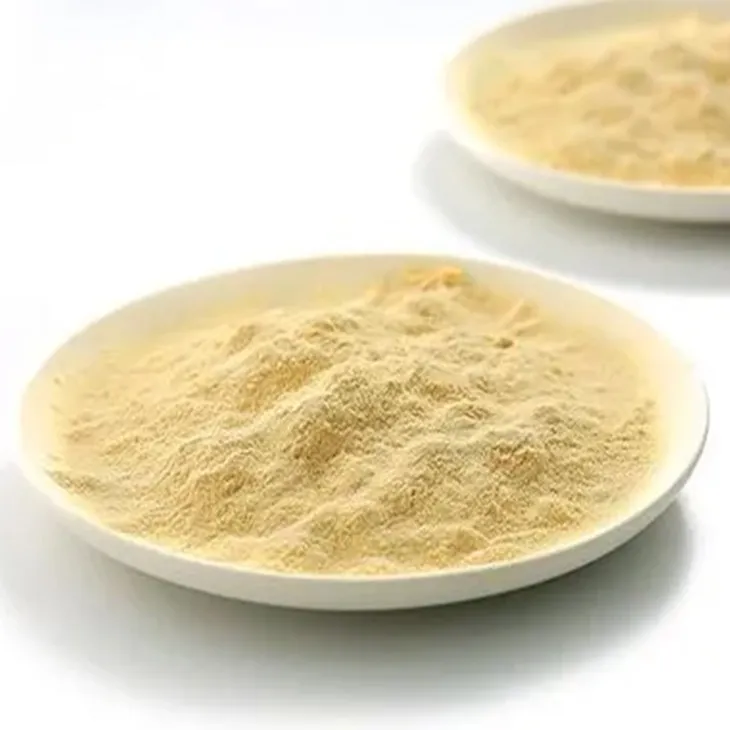- 0086-571-85302990
- sales@greenskybio.com
Selenium yeast can reduce high blood pressure.
2024-11-13

1. Introduction
Hypertension, or high blood pressure, is a major global health concern. It is a significant risk factor for various cardiovascular diseases, such as heart attacks, strokes, and heart failure. The search for effective and natural ways to manage hypertension has led to the exploration of various substances, and Selenium yeast has emerged as a potential candidate. Selenium is an essential trace element that plays crucial roles in the human body, and when presented in the form of yeast - Selenium yeast - it may offer unique benefits in relation to hypertension.

2. Selenium and Its Importance in the Body
Selenium is involved in a number of important physiological processes. It is a component of selenoproteins, which have diverse functions. For example, glutathione peroxidases, which are selenoproteins, play a key role in the body's antioxidant defense system. They help to protect cells from oxidative damage by reducing peroxides. Another important selenoprotein is thioredoxin reductase, which is involved in redox regulation. Selenium also plays a role in thyroid hormone metabolism, which in turn can influence metabolism in general.

3. Selenium yeast: Composition and Characteristics
Selenium yeast is produced by incorporating selenium into yeast cells during the fermentation process. The yeast acts as a carrier for selenium. This form of selenium has several advantages. Firstly, it has a relatively high bioavailability compared to some other forms of selenium. Secondly, it is a more stable form, which means it can be more easily stored and used in dietary supplements. The selenium in selenium yeast is mainly in the form of selenomethionine, which is incorporated into proteins in the body in a similar way to methionine.
4. Mechanisms by Which Selenium Yeast May Reduce Hypertension
4.1 Antioxidant Effects
Oxidative stress is often increased in hypertension. Reactive oxygen species (ROS) can damage blood vessels, leading to endothelial dysfunction and increased vascular resistance. Selenium yeast, through its selenium content, can enhance the antioxidant capacity of the body. As mentioned earlier, selenoproteins like glutathione peroxidases are important for scavenging ROS. By reducing oxidative stress, selenium yeast may help to protect the endothelium of blood vessels and improve vascular function, which in turn can contribute to a reduction in blood pressure.
4.2 Influence on Endothelial Function
The endothelium plays a crucial role in regulating blood vessel tone. Endothelial cells release factors such as nitric oxide (NO), which causes vasodilation. In hypertension, endothelial function is often impaired. Selenium yeast may improve endothelial function in several ways. It may enhance the production or bioavailability of NO. For example, by reducing oxidative stress, it can prevent the breakdown of NO by ROS. Additionally, selenium may also be involved in the regulation of other endothelial - derived relaxing factors, thus promoting vasodilation and helping to lower blood pressure.
5. Research Findings on Selenium Yeast and Hypertension
Several studies have been conducted to investigate the relationship between selenium yeast and hypertension. In some animal studies, animals fed with selenium - rich diets or supplemented with selenium yeast showed a reduction in blood pressure compared to control groups. These results suggest that selenium yeast may have a blood - pressure - lowering effect in vivo. However, human studies have shown more mixed results. Some observational studies have found an inverse association between selenium levels in the body and blood pressure. For example, in certain populations with higher selenium intake, the prevalence of hypertension was relatively lower. But randomized controlled trials (RCTs) have not always been conclusive. Some RCTs have failed to show a significant reduction in blood pressure with selenium yeast supplementation. There could be several reasons for this. Firstly, the dosage and duration of supplementation may vary between studies. Secondly, the study populations may have different baseline characteristics, such as age, gender, and comorbidities, which can influence the results.
6. Factors Affecting the Efficacy of Selenium Yeast in Reducing Hypertension
- Dosage: The appropriate dosage of selenium yeast is crucial. Too low a dosage may not be sufficient to produce a significant effect on blood pressure, while too high a dosage may lead to toxicity. The optimal dosage may vary depending on factors such as age, gender, and overall health status.
- Duration of Supplementation: The length of time for which selenium yeast is supplemented may also affect its efficacy. It may take a certain period of time for the beneficial effects on blood pressure to become evident. Short - term supplementation may not be enough to see a significant reduction in blood pressure.
- Individual Variation: Different individuals may respond differently to selenium yeast supplementation. Genetic factors may play a role in determining how the body absorbs, metabolizes, and utilizes selenium. Additionally, individuals with pre - existing health conditions may have different responses compared to healthy individuals.
7. Safety Considerations of Selenium Yeast Supplementation
While selenium is an essential nutrient, excessive intake can be harmful. Selenium toxicity can cause symptoms such as hair loss, nail brittleness, and neurological problems. In the case of selenium yeast supplementation, it is important to ensure that the total selenium intake from all sources, including diet and supplements, does not exceed the recommended upper limit. For most adults, the recommended daily intake of selenium is around 55 micrograms per day, and the upper limit is set at 400 micrograms per day. However, these limits may need to be adjusted for certain populations, such as those with pre - existing health conditions or those taking medications that may interact with selenium.
8. Future Prospects
Despite the mixed results from current research, there is still potential for selenium yeast in the management of hypertension. Future research could focus on several areas. Firstly, more well - designed RCTs are needed. These trials should carefully consider factors such as dosage, duration of supplementation, and study population characteristics to ensure more accurate and reliable results. Secondly, research could explore the combined use of selenium yeast with other blood - pressure - lowering agents. It is possible that selenium yeast may have synergistic effects when used in combination with other drugs or natural substances. Thirdly, further investigation into the underlying mechanisms by which selenium yeast affects blood pressure is warranted. Understanding these mechanisms in more detail could help to optimize its use and develop more targeted interventions.
9. Conclusion
In conclusion, selenium yeast has shown some potential in reducing hypertension through its antioxidant effects and influence on endothelial function. However, current research findings are not entirely conclusive. More research is needed to determine the optimal dosage, duration of supplementation, and the true efficacy of selenium yeast in different populations. At the same time, safety considerations should always be taken into account when considering selenium yeast supplementation. With further research, selenium yeast may potentially become a useful addition to the arsenal of strategies for hypertension management.
FAQ:
1. What is selenium yeast?
Selenium yeast is a form of selenium supplement. It is produced by incorporating selenium into yeast during the fermentation process. This form of selenium is often used in dietary supplements and has been studied for various health benefits.
2. How does oxidative stress relate to hypertension?
Oxidative stress is characterized by an imbalance between the production of reactive oxygen species (ROS) and the body's antioxidant defenses. In hypertension, oxidative stress is often elevated. ROS can cause damage to cells, including those in the blood vessels. This can lead to endothelial dysfunction, increased vascular resistance, and ultimately contribute to high blood pressure.
3. What role does endothelial function play in blood pressure regulation?
The endothelium is the inner lining of blood vessels. A healthy endothelium promotes vasodilation, which helps to lower blood pressure. It releases substances such as nitric oxide that relax the smooth muscle in the vessel walls. Dysfunction of the endothelium can lead to reduced nitric oxide production and vasoconstriction, contributing to hypertension.
4. Are there any side effects of selenium yeast?
While selenium is an essential micronutrient, excessive intake of selenium yeast can have side effects. High levels of selenium may cause selenosis, which can lead to symptoms like hair loss, nail brittleness, and gastrointestinal problems. However, when taken within the recommended dosage range, the risk of side effects is generally low.
5. How much selenium yeast should be taken to potentially reduce high blood pressure?
The appropriate dosage of selenium yeast for potential blood pressure reduction has not been firmly established. It can vary depending on factors such as individual health status, age, and gender. Currently, more research is needed to determine the optimal dosage. However, it is important to follow the recommended dietary allowances for selenium, which is typically around 55 micrograms per day for adults in the United States.
Related literature
- The Role of Selenium in Hypertension: A Review of the Evidence"
- "Selenium Yeast and Cardiovascular Health: Insights into Blood Pressure Regulation"
- "Oxidative Stress, Endothelial Function, and the Potential of Selenium Yeast in Hypertension"
- ▶ Hesperidin
- ▶ Citrus Bioflavonoids
- ▶ Plant Extract
- ▶ lycopene
- ▶ Diosmin
- ▶ Grape seed extract
- ▶ Sea buckthorn Juice Powder
- ▶ Fruit Juice Powder
- ▶ Hops Extract
- ▶ Artichoke Extract
- ▶ Mushroom extract
- ▶ Astaxanthin
- ▶ Green Tea Extract
- ▶ Curcumin
- ▶ Horse Chestnut Extract
- ▶ Other Product
- ▶ Boswellia Serrata Extract
- ▶ Resveratrol
- ▶ Marigold Extract
- ▶ Grape Leaf Extract
- ▶ New Product
- ▶ Aminolevulinic acid
- ▶ Cranberry Extract
- ▶ Red Yeast Rice
- ▶ Red Wine Extract
-
Yam Extract
2024-11-13
-
Sea buckthorn oil
2024-11-13
-
Apricot Powder
2024-11-13
-
Red Wine Extract
2024-11-13
-
Giant Knotweed Extract
2024-11-13
-
American Ginseng Root Extract
2024-11-13
-
Acai Berry Extract
2024-11-13
-
Avocado Extract Powder
2024-11-13
-
Mulberry leaf Extract
2024-11-13
-
Reishi mushroom extract
2024-11-13





















